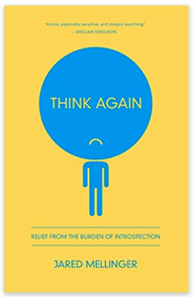|
Written by Judy Johnston, staff counselor at Word of Hope Ministries
The New Counselor Series: The “R” Word Ending one of my supervised counseling sessions with what I hoped was a gentle smile, I waved good-bye to my counselee. As I closed the door and returned to my chair, my stomach muscles were tense and sore. Had I been that worried about the session that I had unknowingly tightened my abdominal core to hold myself together? Counseling in a formal setting was new to me, but God had been preparing me for many years for this new role, bringing women into my life with whom to pray, to weep, to encourage and to study God’s Word. He had also provided excellent training through IBCD’s video program, and some excellent counseling books and He had given me a remarkable mentor/supervisor for my training. What was wrong? The next day, I met with my supervising counselor debriefing my session. Even as I expressed my apprehension, tension tightened my core again to the point of discomfort. I pushed aside the ache, eager to glean from my mentor how to better bring the hope and encouragement of the Scriptures into the life of my new counselee and allay any fears that might be causing the tension. By early evening, I could no longer ignore my body’s message. I needed to get a handle on my body’s response to something going on in my mind and heart. Was I letting a sense of inadequacy rob me of peace? Was I allowing the feeling of being out of my comfort zone induce physical tension? Was I going to implode with tension every time I counseled? It was time to examine my heart and get to the root of the tension. REST Resting in the sufficiency of God’s Word was foundationally crucial for every counseling session. Knowing that “the Word of God is living and active…discerning the thoughts and intentions of the heart...” (Heb. 4:12) comforted me. God had already provided all the wisdom and direction through His Scriptures I would need for my counselee. Evaluation: Was I truly leaning on the trustworthiness of God’s Word or was I expecting to add something to it that would turn my counselee’s life around? Action: I prayed that God would help me lean on and rest in His truth to change the heart and mind of my counselee. RELY Reliance on the Holy Spirit was another necessity for insight, discernment and direction that would bring me peace as a counselor. The Holy Spirit would know the heart of my counselee and would guide me in choosing appropriate Scripture passages and homework assignments. He is the one who “guides us into all truth” (John 16:13) and helps us understand that truth. In Him, we can “receive mercy and find grace to help in time of need.” (Heb. 4:16) Evaluation: Was I relying on the Holy Spirit, praying before each session for my heart and that of my counselee? Was I calling out to Him in silent prayer during the session when it took a turn I wasn’t expecting? Action: I asked God to help me totally rely on Him for every session and to remind me to turn to Him continually. RESPONSIBILITY Resting and relying don’t usually lead to tension. What then was the source of my abdominal tension? Evaluation: A friend’s probing question revealed my heart; what I was experiencing was another “R” word, responsibility. I was feeling responsible for the results of the counseling session. Though I was resting in the sufficiency of God’s Word and relying on the Holy Spirit’s help, I was holding myself responsible for the outcome. Rather than simply being an ambassador of reconciliation, a mere jar of clay, honored to hold the glory of God that others might see Him and know Him, I was placing myself in the role of changer of hearts. Action: The moment that understanding hit home, I repented and relaxed. I would yield to God’s sovereignty over the results, trusting Him as the Changer of hearts and lives as I pointed to Christ through the gospel. And I would ask God to keep reminding me of my utter dependence on Him. My encouragement to fellow new counselors is to remember to whom the responsibility belongs. Yes, we are responsible to keep studying God’s Word, keep growing spiritually, keep loving and listening well, but we are not responsible for the change in the heart of another person. He who began a good work will be faithful to complete it! The Rest of the Story Several days later as I bent forward in my stretching exercises, the source for the tightness and soreness in my abdominals revealed itself. Prior to the counseling session I had just restarted my core-strengthening exercise routine after a several-month hiatus. I had to laugh out loud! God was using my exercise program to not only help me build physical discipline but also to teach me more deeply the difference between His role in biblical counseling and mine. God is faithful!
0 Comments
The Purpose of the Local Church
This post first appeared at Biblical Counseling for Women The church is called the “pillar and support of the truth” by Paul. God’s Word has been preserved and passed along throughout the ages by the church. Anyone who wants to grow in the knowledge of the truth and to learn more about God should find a local church that honors and teaches the Bible. They will benefit from the teaching ministry which is offered there. “Although I hope to come to you soon, I am writing you these instructions so that, if I am delayed, you will know how people ought to conduct themselves in God’s household, which is the church of the living God, the pillar and foundation of the truth.” (1 Timothy 3:14-15) One-Another ministry, or caring for souls or “soulcare”, belongs in the context of your local church. If we take an honest look at our churches in our lifetime, we have to admit that we have often neglected to care for the souls of our church family in this context. The apostle Paul explained that the church was the “body of Christ” with Jesus as its “head.” “And God placed all things under his feet and appointed him to be head over everything for the church, which is his body, the fullness of him who fills everything in every way.” (Ephesians 1:22-23) Paul’s description emphasizes the relationship that each believer and the local church has to Jesus. Since the church consists of people who believe in and follow their Savior Jesus Christ, they are under His rule, and He works through them. Anyone wanting to draw closer to Jesus and experience His working in their lives will greatly benefit from coming into association with a local body of believers. God’s Word instructs believers not to neglect gathering together with other believers. Our purpose as One-Another ministers is to fulfill the Great Commandment and the Great Commission, both within our churches and in our spheres of influence outside the church. Without the local church to edify, encourage, and equip believers, this purpose cannot be fulfilled. “Let us not give up meeting together, as some are in the habit of doing, but let us encourage one another—and all the more as you see the Day approaching.” (Hebrews 10:25) The care that believers had for one another in Acts 2 has continued in various forms through the years. It can be defined as “believers speaking the Truth in love anchored in the Word of God, depending on the Holy Spirit.” In our culture, it is called by many names such as: *Discipling *Mentoring *Teaching *Biblical Counseling *Pastoral Counseling *Spiritual Guidance *Spiritual Formation *Friendship *Spiritual Friendship *Soulcare We Need Soulcare A church with a culture of soulcare will bear much fruit. All believers need soulcare, not just those who are struggling. We all need One-Another ministry in various forms. We do have a tendency in our churches today to neglect the hurting believer. Hurting individuals used to be taken care of primarily by the local church, but are now often referred out to secular sources of help that will not provide true soulcare. Those sources can have some benefit for learning some behavior management that brings some relief, but they will not provide what we see in our definition of soulcare — “speaking the Truth in love anchored in the Word of God, depending on the Holy Spirit.” For a believer to have lasting change and hope, she must be helped with some form of soulcare, preferably within her local church. Another good choice would be help from a Biblically-based counseling ministry if none is available in the local church. Biblical Counselors are glad to provide counseling to those who come to them from other churches, but all of them would agree that the best scenario would be that local churches become well equipped to counsel, disciple, mentor, teach, and befriend their own church family. (Please realize that there can be an appropriate time for someone to seek Biblical help outside of their local church. If someone’s problems are serious enough that they are seeking counseling, the only option may be an outside Biblical Counselor who can help for a season. The counselor’s goal will be to return the woman to her local church for further discipleship once the counseling has ended. If a person is in need of medical assistance or medication, that has to be addressed by a licensed professional. Even if that is the case, she will need good One-Another relationships in her church family as she undergoes whatever kind of treatment she and her doctor choose.) Let’s caution against creating an environment in our churches where literally all we talk about are our struggles and problems, but let’s also provide opportunities for hurting people (aren’t we all hurting at some time or other?) to get the soulcare they need, through excellent One-Another relationships. These One-Another relationships are based on the many “one-another passages” in the Bible, practicing them in the context of relationships with other believers. Where Do You Fit? Paul explains that gifted people have been given to the church in order to bring believers to a place of fruitfulness in service and maturity. “It was he who gave some to be apostles, some to be prophets, some to be evangelists, and some to be pastors and teachers, to prepare God’s people for works of service, so that the body of Christ may be built up until we all reach unity in the faith and in the knowledge of the Son of God and become mature, attaining to the whole measure of the fullness of Christ.” (Ephesians 4:11-13) We often say that someone is “called to full-time ministry.” True, some believers engage in ministry vocationally, but does that mean that other believers are not engaging in ministry? Of course not. We are all full-time ministers, or we are not ministering at all. You, too, are called to full-time ministry. We all are. One-Another relationships are a ministry, and the lifestyle of a believer. We all are given different gifts useful to specific types of One-Another ministry, but everyone has a ministry of soulcare. Where do you fit in? How do you see yourself gifted for One-Another ministry? Are you confident about your ability to minister to women and girls? What are your insecurities about it? Take some time to talk with the Lord about how He wants to use you in your relationships in your local church. As you engage in your church, be sure to help others to engage in the opportunities the church provides for their ongoing growth. Let’s encourage one another to worship, fellowship, prayer, devotion, study, memorization, service, and discipleship. Reviewed by Benji Magness, my pastor at Grace Baptist Church, Santa Maria, CA. Used by permission.
Visit Pastor Benji’s blog at: https://amazinggreycity.wordpress.com Honest confession: I can be morbidly introspective. My devotional times, my prayer times- pretty much any time, you will find me being morbidly introspective. I often rehearse the day and all of my shortcomings and how I failed. I obsess over words that I said or didn’t say, I obsess over what others think of me, I obsess over how things might have been different had I acted different. It’s really sad, actually. And I’m a pastor! But I’m sure none of you struggle with this, right? Well, I have good news for you if you do. If your self-examination turns into a cross-examination and you always end up hearing a guilty verdict, then I’ve got some good news for you. Actually, Jared Mellinger does in his new book, Think Again: Relief From The Burden Of Introspection. I was thrilled to see that this book was coming out and very happy to review it here on my blog because this is a real struggle of mine. And Jared does not disappoint. He helps people see how paralyzing it is to live a life focused on self. He paints a wonderful picture of what true Gospel-centered freedom looks like when we focus on Jesus. So if you’re a person who overdoses on introspection, then this is the rehab you’ve been looking for. If you find yourself obsessing over your looks, how people perceive you, second-guessing yourself, and replaying conversations in your head (who doesn’t do this?), then this book is for you. And in the end, Jared simply reminds you of what you already know: you need to keep your eyes on Jesus. You know that, right? Of course you do. You’ve heard the oft-cited Robert Murray McCheyne wisdom: “For every look at self, take ten looks at Christ!” We’ve all heard that quote in sermons (heck, I’ve used it in my sermons!), we’ve re-tweeted it, we’ve liked it and hearted it and all that other social media stuff. But it’s a lot harder than it looks (pun intended). It’s a lot harder to “look at Jesus 10x for every gaze at your navel” than the preachers make it out to be- take it from this preacher. So why get this book? Here’s why: Think Again tells you how to do it. It tells you how to keep your eyes on Jesus. It’s full of practical, Gospel-centered reminders that will help you quit obsessing over you. For instance, chapter 10 (“Self-forgetfulness”) alone is worth the price of the book. Jared gives hands-on experience in the art of losing yourself in many areas of life like worship, love, art, sports, preaching, and work. But more than a book full of “how to’s” and practical tips, Think Again keeps reminding you about Jesus. And isn’t that what you’re looking for in a good book? Don’t you want to love Jesus more as you read the very last paragraph and close the book? Don’t you want to walk away from a book and think, “I just spent time with Jesus. And I love Him more now that I’m at the end notes than I did when I read the introduction”? Well, Think Again does that. I cannot recommend it enough. Here are a few quotes to whet your appetite so you’ll go out and buy this thing and then fall more in love with Jesus: The antidote to excessive introspection is not to completely forget myself, but to look more to the Lord Jesus Christ, which leads to thinking rightly- and less often- about myself. (p.12) The irony of identity is that a clear view of yourself comes only as you learn to look away from yourself. (p. 18) What we learn is that the gospel rescues us from self-hatred and self-esteem by destroying the idol of self and replacing it with Christ. (p.31) Once self is made an idol, I will either view myself as awesome or as a failure. (p. 33) Self-absorption is not always loud and self-promoting; it can also look shy and insecure. It does not always come in the form of thinking of ourselves more highly than we ought. It also comes in the form of thinking of ourselves more often than we ought. (p.48) One more teaser and then you need to go get this book: There is something appealing about a soul that delights in the Lord, serves others gladly, laughs at the days to come, and thinks far less often about how everything relates to self. This is who God made us to be. (p.49) So what are you waiting for? Go pick up a copy or two of Think Again and help Jared by groceries for his family. Sorry, I had to write that last sentence because he has 6 kids like I do, so I feel his pain. Seriously, get this book and you’ll love Jesus more by the time you get to the endnotes. And then you can go serve others gladly, and laugh, and think far less about you. After all, this is how God made you to be. Let Think Again nudge you in that direction again. To learn more about Jared or to purchase his book: http://stores.newgrowthpress.com/think-again-by-jared-mellinger/ http://litfusegroup.com/author/JMellinger Follow the conversation on Twitter: @litfuse @NewGrowthPress @JMellinger * I was given a complimentary copy of this book in exchange for writing this review. This post first appeared at Biblical Counseling for Women
Tempted by Discouragement I discovered something really great about blogging. You can go back and read things that you wrote in years past, and find that those words you wrote in the past can bring you fresh encouragement today. I have been battling the temptation to be a bit discouraged in ministry lately. Nothing too major - just some plans that have not worked out the way I wanted them to. Sometimes leading a biblical counseling ministry feels like swimming upstream. It is not as widely received as it could be, and in my area biblical counselors are few and far between. There are behind-the-scenes challenges of running a nonprofit organization that are daunting, and frustrating at times. When I am tempted to become discouraged, I can choose to trust that this is true for me: 1 Corinthians 10:13 No temptation has overtaken you that is not common to man. God is faithful, and he will not let you be tempted beyond your ability, but with the temptation he will also provide the way of escape, that you may be able to endure it. It is true for you as well. Your temptation to be discouraged probably looks different than mine, but the sufficiency of God's Word applies to whatever you are facing. Swimming Upstream In 2013, I wrote a blog about being a counselor "swimming upstream": http://bc4women.org/2013/12/a-counselor-swimming-upstream/ My circumstances were quite different then. Many things have changed. The counseling ministry I direct has become a 501c3. I go to a different church now. I have had great opportunities to speak, write, and serve in ways that I never saw coming at the time I wrote that blog. So what do I have to be discouraged about? The truth is - nothing, really. The 2013 blog post reminded me that I am not guaranteed to get my way when I make plans, and that ministry life is hard. And that the hard stuff is for my good, and God's glory. I am going to quote myself here, because it is a reminder that I can escape the temptation to be discouraged: "When I am discouraged about the upstream swim ahead of me, I remind myself of God’s faithfulness provided in The Gospel. We do not have to rely on our determination, stamina, or will. We can rely on Him Who saves." My Own Heart Leads Me to Temptation So why do we get discouraged, or at least tempted to be, when there is so much to be grateful for? I find that if I take a look at the discouraging circumstances in my life more deeply, I realize it is my own heart that leads me in to temptation. I encourage you to take a look at your own heart, too. Here are some matters of the heart that I have found helpful to consider: *What (or who) are you trying to control? Circumstances? People? Outcomes? *How much thought life do you spend on worry and frustration rather than gratitude? *What are you wanting, but not getting? Your own way? Or, God’s way? *What plans are not unfolding in the way you had expected or hoped for? *Who are you disappointed in, and why? Yourself? Others? *Have you forgotten God's faithfulness? *What do you turn to for comfort when things are not going well? Worldly comforts? Or, Jesus? *What are you afraid of? Failure? That God might fail you? *What gives you hope? My own efforts, or God’s finished work on our behalf? Your responses to those questions reveal what is in your heart. If your responses show fear, distrust, and unbelief then you know that you must align your heart with the gospel. Discouragement does not honor Jesus, because He commands us not to be. Just before His disciples’ most discouraging circumstance – His death – He said “Let not your hearts be troubled” (John 14:1). Rather than being afraid, He wants their hearts to be comforted by His promises rather than by what they were seeing. The same is true for us today. Looking vertically to God and His goodness rather than horizontally to our circumstances changes our hearts! There is Hope If you are swimming upstream in your circumstances, there is hope. In fact, we can do better than "just keep swimming." We can endure our circumstances with patience, joy, peace, and trust because we have the fruit of the Spirit in us. Discouragement quenches the Spirit, and that is a matter of the heart. We can repent of our unbelief and distrust today, and escape the temptation of discouragement. Join me? Galatians 6:9 And let us not grow weary of doing good, for in due season we will reap, if we do not give up. This post first appeared at the Biblical Counseling Coalition
Mentoring is a buzzword in our current culture. A quick google search on the words “mentoring teenagers” yields dozens of articles, blogs, organizations, and curriculum to mentor teens in both the secular and Christian realms. Biblical mentoring sets itself apart from many other mentoring techniques because it is not a program or a formalized ministry. It is a mindset, a lifestyle, and an organic means of discipleship that dovetails with the already existing ministries in the local church. It can happen anywhere your life intersects with the lives of teens. Many of the “Christian mentoring” programs and organizations appear to mimic the secular ones to a large degree. Others model themselves after secular mentoring methods, but add some Scripture or Biblical principles. Counselors, youth pastors, Sunday School teachers, youth workers, homeschool group leaders, neighbors, nieces and nephews, your own kids or friend’s kids - anyone who disciples youth is positioned well to provide biblical mentoring to the younger generation. There are three distinctives that make biblical mentoring unique: Biblical motives Biblical methods Biblical message Biblical Motives There are many common sense reasons to mentor youth. Students who have mentors are much more likely to stay in school, have better school attendance, avoid alcohol and drugs, enroll in college, hold a leadership position in a club or sports team, participate in extracurricular activities, and volunteer regularly in their community. Teenagers are at a critical stage in their spiritual understanding and we are all concerned about the number of young people leaving our churches in their late teens/early twenties. Biblical mentoring goes deeper than the reasons our common sense gives us. For biblical motives we turn to the Bible. The book of Titus, chapter 2, offers us a biblical motivation by mandating that the older teach the younger for the sake of preserving sound doctrine in the body of Christ through the generations. Titus 2:1 " You, however, must teach what is appropriate to sound doctrine." Biblical Mentoring is a gospel-centered ministry that involves making disciples by sharing the gospel for salvation as well as teaching others who are younger to apply the gospel to their sanctification. Teenagers are able to understand theology and doctrine, and they benefit from older men and women who are willing to impart wisdom and Truth in to their lives. Biblical Methods It can be helpful to become equipped and trained as a biblical counselor or mentor in order to maintain biblical integrity in relationships with the next generation. Whether or not a mentor receives formalized training, the Bible contains what is needed to make mentoring truly biblical. A deep discipleship relationship targets the heart of the teen. It is tempting to focus on outward behaviors, but lasting change requires heart change. We focus on the heart by asking good questions that reveal the thoughts, beliefs and desires of the teen as we teach them about God’s Word and how the gospel applies to their day to day lives. The one-another scriptures are as applicable to teens as they are to adults, and they provide methods for mentoring that exceed what programs and some organizations provide. The one-another passages are both doctrinal and practical. Each one of the over fifty one-another verses in the New Testament can become a teaching opportunity for a mentor. Beginning with "love one another", a teenager can learn to love like Jesus by following the mentor's example in living this out while teaching and applying the rest of the one-another passages to the teenager’s relationships and life struggles. John 13:34 "A new command I give you: Love one another. As I have loved you, so you must love one another." Mentoring is discipleship that is personal and intentional. Be creative as you look for ways to mentor a teenager. Teens will be more likely to be open to your mentorship if you gain their trust by caring about the things they care about. Be natural in your interactions and remember that teenagers are open to having a mentor but they tend to respond best when it is not programmed or forced. Start casually and ease in to the relationship. In time, this kind of mentoring relationship can be among the most rewarding relationships you will ever enjoy. Biblical Message I spend a fair amount of time in my counseling ministry focusing on intergenerational ministry, specifically mentoring youth and young adults. I often urge colleagues, parents, and pastors to consider the concept of biblical mentoring the youth in their sphere of influence. I can cite many more good reasons to consider this, but this time I would like to let some teens speak to the matter themselves. I asked a handful of teenagers in my life to tell me what they need from the older generations. Their answers are insightful and helpful to us as we consider how to encourage them towards faith and a healthy Christian walk. Here are some of their responses: “Why are there so many unjust and unfair situations in the world, and what can a teenager do about them?” “How are we supposed to love others and be compassionate when the whole world seems to be so mean right now?” “How do I know what my purpose in life is?” “How do I, as a Christian teenager, deal with all the confusion and injustice in the world?” “I am worried about my future and the future of the world. There is so much suffering and it scares me. How should I deal with that?” If you read those questions and statements very carefully, you can discern a common thread. These teens are asking us to teach and clarify theology. Every one of those concerns is addressed by studying God’s character. Teens need to gain an understanding of God’s goodness, love, holiness, sovereignty, justice, faithfulness and all other attributes. Discussions and study about theology, specifically God’s character, are a critical topic to include in mentoring teens as you address their questions and concerns. They want to know about God and the gospel and will trust you more if you allow them to ask questions and admit their doubts. God’s Word is sufficient to address these matters. You can help a teen to learn how to study their Bible for answers as you come alongside them as a mentor. 2 Timothy 3:16-17 “All Scripture is breathed out by God and profitable for teaching, for reproof, for correction, and for training in righteousness, that the man of God may be complete, equipped for every good work.” A very good additional resource to assist you in discussing doctrine and theology with teens is The New City Catechism, developed by Tim Keller and Sam Shammas. It is very user-friendly, interactive, and helpful in mentoring and discipling anyone. It is not specific to any one denomination. In an easy-to-follow format, you will find help in answering the questions that teens have. Please visit their website for more information: www.newcitycatechism.com For equipping and training as a mentor, please visit: www.biblicalmentor.com Join the Conversation Are you discipling the younger generation including these distinctives of biblical mentoring? What are the challenges, and what fruit have you seen? |
Ellen Castillo
Thank you for stopping by my blog! Come back often to stay in touch with the latest updates. Archives
March 2024
Categories |





 RSS Feed
RSS Feed